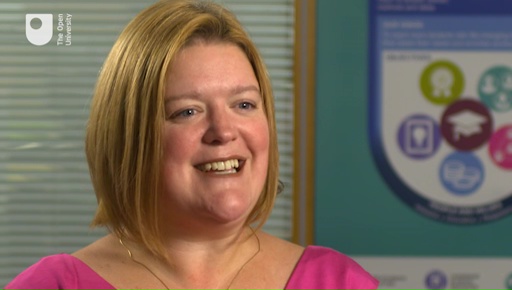2.3 Support from your employer
There are many ways that employers can support their staff in building their personal and career resilience. For example, you briefly explored what can be done to support team resilience in Week 4.
In some professions, where the demands on employee resilience are recognised to be particularly tough, employers address this in detail. In the next activity, you will investigate how trainee social workers are supported.
Activity 5 Boosting the resilience of social workers
Watch the following video in which social work recruiter, Pash Selopal, describes how Frontline, his employer, supports trainee social workers to develop resilience.
Make a note of the measures Frontline uses to help trainee social workers develop resilience.

Transcript: Video 3 Developing resilience
Comment
As the job is challenging, Pash describes the importance of hiring mentally tough candidates who are already resilient, with their own coping mechanisms and a personal network. The programme places groups of participants in the same location to help build a professional network and they receive weekly supervision as a group with a more experienced social worker, where they discuss cases, problems, potential solutions and risks, and challenge working assumptions.
These strategies build on research by Louise Grant and Gail Kinman (2014) at the University of Bedfordshire. Their work looked at factors that enhance resilience in the helping professions. These include:
- Supervision: In many helping professions, regular supervision is key. This gives a safe environment where individuals can think about their work, discuss issues with which they struggle and discuss their emotional reactions.
- Mentoring and peer coaching: Conversations with others who face the same challenges can make a difference. Feeling part of a peer group, developing social connections, gaining positive role models and experiencing coaching are all successful methods for supporting resilience.
- Mindfulness and relaxation: Mindfulness incorporates meditation, yoga and relaxation training. Mindfulness has been associated with increased compassion for self and emotional resilience.
- Discussion of case studies: Case studies and role play can open up discussion on problems, decision-making and difficult emotions in a safe environment.
Tactics for you
The strategies used in the helping professions may not be as relevant in other sectors. But could any of them help in your work situation? If your employer is not supportive, you might introduce something yourself on an informal basis. For example, you could try:
- setting up regular meetings with colleagues to work through difficult issues together, or organising informal shared lunches to get immediate peer support
- joining an online LinkedIn forum, or a closed group on Facebook
- exploring yoga and mindfulness groups
- joining organisations linked to your sector, such as professional bodies (which often have cheaper student membership fees). They might offer business breakfasts or voluntary groups in your field.
You might find it useful to note down some initial thoughts about this.
It isn’t always about what you do personally – delegating tasks or collaborating with others can be another source of support. Watch this brief video from Rebecca Fielding, with a final tip on what she observes highly resilient, but very busy, people doing at work.

Transcript: Video 4 Resilience at work
Rebecca identifies a key question, ‘How can this be done?’ and suggests that you don’t always have to do something yourself. This is where your professional and personal support networks might be helpful, and you’ll look at those in the next section.
